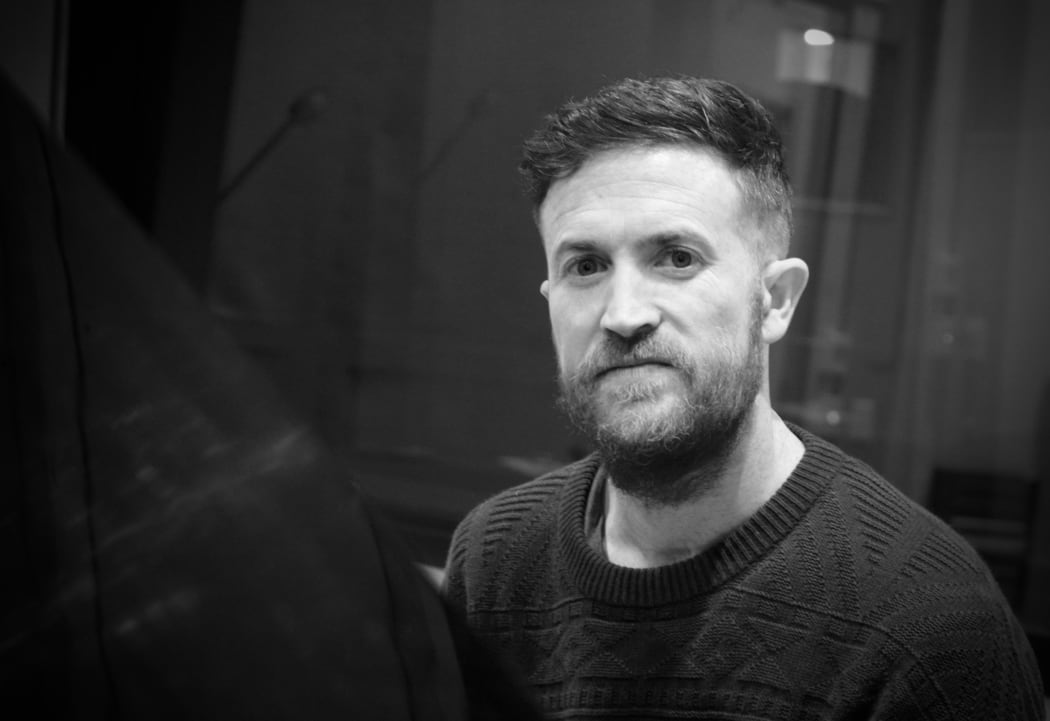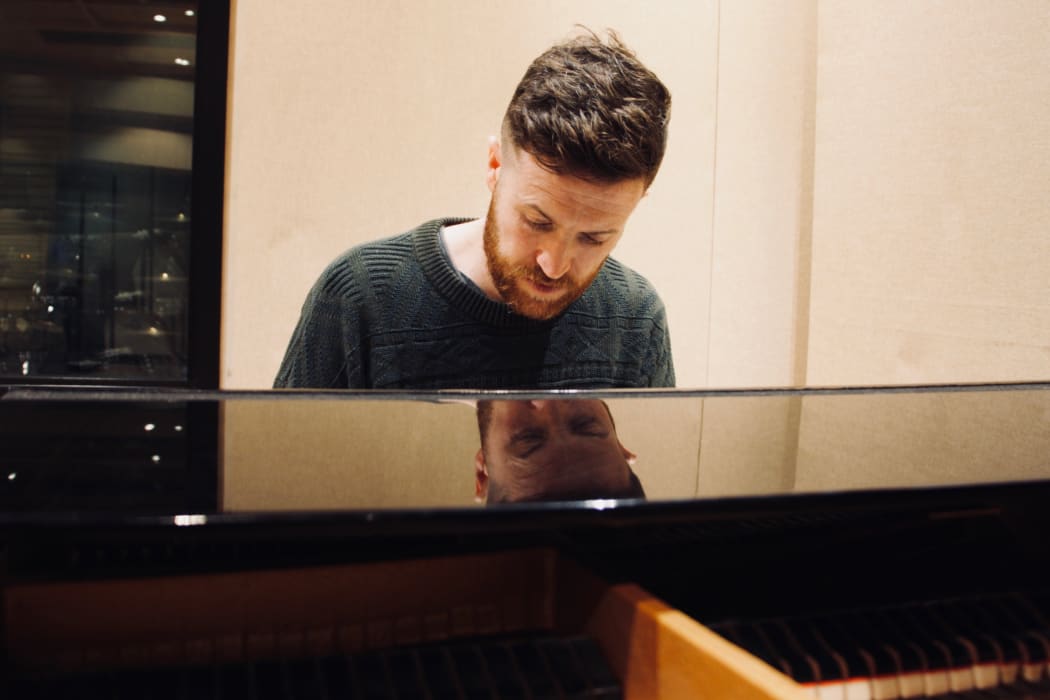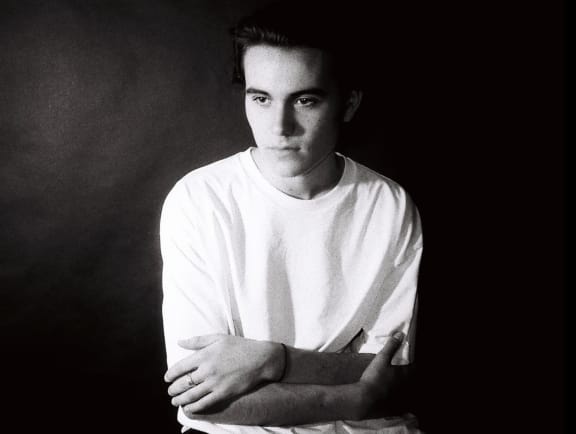Former Shapeshifter sax-n-synth man Devin Abrams has been making music under the name Pacific Heights since 2002. He tells Kirsten Johnstone about the vivid, visceral dream that inspired his new concept album A Lost Light, and shares the short film that accompanies it.
Director: Rob Burrowes
Devin Abrams wears many hats. In addition to creating music under the name Pacific Heights, he’s a music production lecturer at Massey University who's worked with young artists to develop their careers and produced albums for many acts including Drax Project and The Adults.
His new album A Lost Light features vocal and instrumental contributions from Dallas Tamaira (Joe Dukie) of Fat Freddy’s Drop, Al Green from Groeni, Anita Clarke (aka Motte), Julia Catherine Parr of Physical, and newcomers Neil MacLeod and Anna Edgington (Edie).
He tells Kirsten Johnstone about the dream that inspired the new record.
It was probably mid-May 2017. I woke up, having experienced a very visceral, intense dream. I’d experienced it in the first person, as a lead character. I wouldn't say protagonist, because there was no antagonist, just a lead character.
In the dream I'm an 18 or 19-year-old English kid – working class – in mid-18th Century London. I’d just married, and was passing down the barge docks, and hearing this conversation with these sailors – gruff looking sailor men – about this place called the Pacific, and it sounded so romantic, and dreamy.
It sounded like a place – compared to the grime of day-to-day London – that I could move a family to and have a new life. And so, I got home and told the wife what I'd heard, and said, ‘How would you feel about me trying to get on one of these boats, and going and exploring these waters, and potentially moving us to a new place?’
And, she's like, ‘Oh it sounds great, yeah, okay,’ not really knowing the reality, because most people in those days hadn't ever experienced the sea, or travel. So I managed to somehow convince this captain of this exploratory kind of ship to take me on – with no sailing experience – as a crew hand, and I got on the boat.

Devin Abrams aka Pacific Heights Photo: RnZ/Kirsten Johnstone
So, the first chapter of the album is quite a peaceful, dreamy few tracks. It's that kind of hopeful haze of the first few days of sailing, just dreaming of this place and what it might smell like, look like, feel like on the skin, and what possibilities it would have for a family.
Then the album turns with the single that's out at the moment, ‘The End is in Sight’. It’s quite literally the turning point in the dream – hence the name – where this imminent storm is coming.
There's always a storm with you, Devin.
There is, isn't there? I don't know what it is with me, I love storms. I really do. They seem to make their way even into my dreams.
So yeah, the storm comes in and all these experienced sailors are looking quite nervous, and quite worried. And everything turns. The tune builds very dramatically and throws us off the ship at the end of the song, and the next stage is about survival at sea.
I guess the whole thing with this dream, was the sense of loss … being thrown overboard, and realising that you're grieving the return of the ship or anyone coming to get you.
And so, survival at sea for a few days, then you get thrust onto this rocky island – an uninhabited island – and the next stage of grief is realising that you're alone. There's no humanity on this island and you grieve the possibility of returning to your family.
That chapter is actually the bulk of the album, and it's four years. Four years of living alone, going through all the stages of this internal storm.

Devin Abrams aka Pacific Heights Photo: RNZ/Kirsten Johnstone
Then the final stage of the story is the sense of closure that I want to leave open… I know that's contradictory, but the last lyric is, “Is it better to tie these rocks and stones to my bones and sink, than be alone?” The idea of, after four years of living in solitude without any human touch, without any human interaction, is that too much for a human soul to bear?
That was when I woke up and I was like, “Holy shit that was really heavy.” I was teary. I just didn't know what to do with it. I'd had one of these dreams before where I tried to write a novel, but I'm not a writer and that never got finished of course.
I decided this time I was gonna make a conceptual album with that dream.
So, what did you do when you got up, you wrote it down?
Bullet point, as quickly as I could, all the timeline things, then under each of those were the feelings I’d had in each of those parts. I didn't want to dwell or sit too long on the writing. I had the blueprint there, so I just instantly got onto the music writing and that took about two weeks, and the bulk of the album was written.
Sonically, you say that you wanted to use piano and strings. Why was that?
Well, obviously I'm an electronic artist and Pacific Heights has always been very electronic, but I felt the music was a soundtrack to the story, which I haven't done before necessarily – a story like this. I felt it was a nice nod to the instruments from that time, that could be incorporated into modern electronic production.
Did you learn those instruments as a kid? Your family is into classical music. Your brother's a bassoonist.
I was one of the few members of my family that really did not enjoy classical or traditional music. I very much wanted to just learn by ear and jam. But classical has been a big part of my upbringing. Listening to a lot of the music and watching my siblings learn, then Colin – my brother – becoming a professional classical musician.
But for me it was always about using my ear. So, I had no traditional training really, around piano, or strings, or anything like that. I was a sax player but again, learned by ear. So the classical thing… I was listening to a lot of modern classical music around the time of the album’s creation, and even leading up to that.
I think one of your great strengths Devin, is that you're able to identify some great up and coming singers, and one in particular that I really love on this album is Christchurch teenager Neil MacLeod.
Neil MacLeod and myself have had a very serendipitous relationship. I travelled down to Christchurch and did a kind of guest lecture at his high school, St. Andrews. Neil came up to me at the end and said, I really love your ‘Buried by the Burden’ track you did with Louis Baker, which was off The Stillness. And we just started chatting and I thought, “Wow what a wonderful kid.”

Neil MacLeod Photo: Supplied
He was really, really enlightened, and there was a lot of self-education going on – he was very hungry. Then he ended up coming to the university that I lecture at, and we just formed a kind of friendship.
Naturally we started collaborating, and it just came from him coming up to my studio one time, like most of my musical collaborations begin. It’s just an organic hangout. No strings attached. Just, “Let's hang out, have a cup of tea.”
Then I had some of these early, primitive compositions and I showed him a couple of those, and he said, “Do you mind if I sing on these?” And, I was like, “Okay, let me set up the studio.”
Neil's a wonderful musician. I'm actually producing his next EP. We've been working on that, absolutely stunning composer, beautiful, unique voice I think too. And, he's only just turned 19. I'm just like, “Man how do you have that kind of formation at that age?” I was very driven and ambitious at that age, having just started Shapeshifter, and managing that band, but I did not have the kind of, the palette, and self-awareness, especially around lyric writing and composition.
You've been mentoring Neil, producing other people's albums and lecturing at Massey – how do you find the time to make your own music?
Well, that was really lucky about this dream. It was very efficient. The most efficient album I've ever made. I didn't actually have any other projects on, it was just serendipitous, fortuitous timing. I locked myself away for those two weeks, and just wrote. And, then the whole record kind of got pieced together in about three months.

